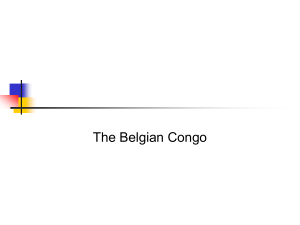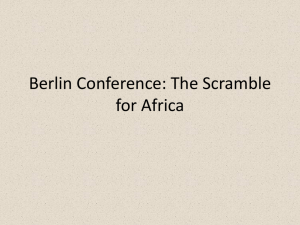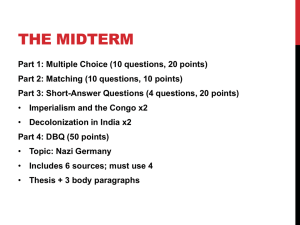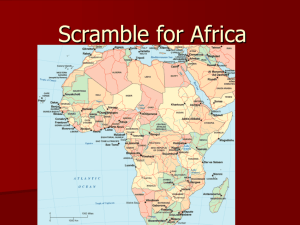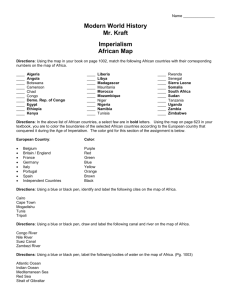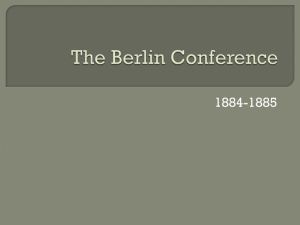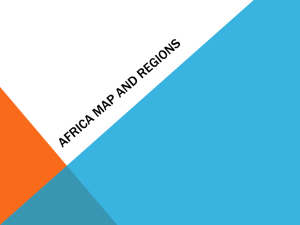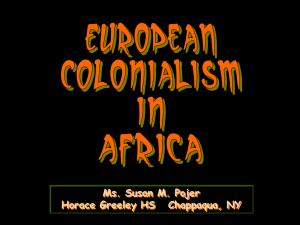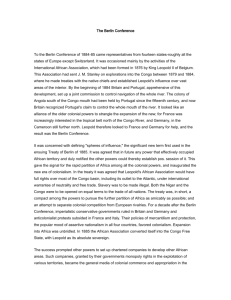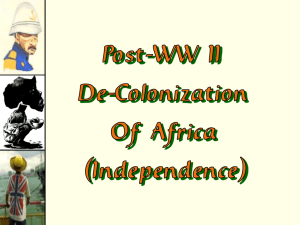Leopold II's Letter on the Congo, 1890
advertisement
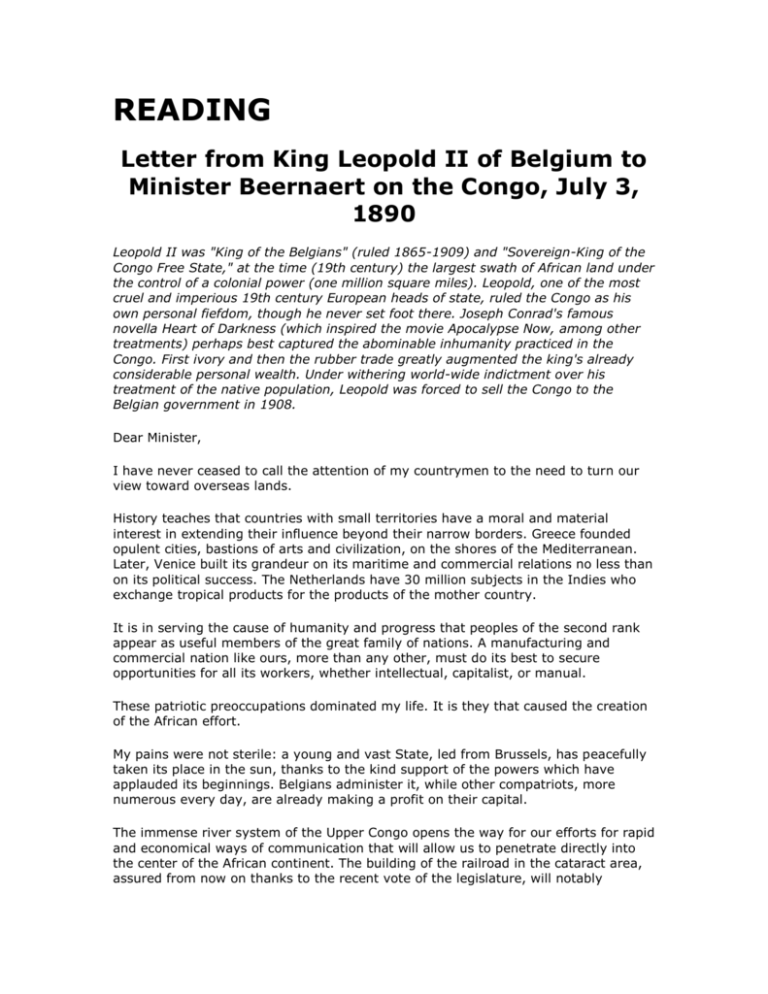
READING Letter from King Leopold II of Belgium to Minister Beernaert on the Congo, July 3, 1890 Leopold II was "King of the Belgians" (ruled 1865-1909) and "Sovereign-King of the Congo Free State," at the time (19th century) the largest swath of African land under the control of a colonial power (one million square miles). Leopold, one of the most cruel and imperious 19th century European heads of state, ruled the Congo as his own personal fiefdom, though he never set foot there. Joseph Conrad's famous novella Heart of Darkness (which inspired the movie Apocalypse Now, among other treatments) perhaps best captured the abominable inhumanity practiced in the Congo. First ivory and then the rubber trade greatly augmented the king's already considerable personal wealth. Under withering world-wide indictment over his treatment of the native population, Leopold was forced to sell the Congo to the Belgian government in 1908. Dear Minister, I have never ceased to call the attention of my countrymen to the need to turn our view toward overseas lands. History teaches that countries with small territories have a moral and material interest in extending their influence beyond their narrow borders. Greece founded opulent cities, bastions of arts and civilization, on the shores of the Mediterranean. Later, Venice built its grandeur on its maritime and commercial relations no less than on its political success. The Netherlands have 30 million subjects in the Indies who exchange tropical products for the products of the mother country. It is in serving the cause of humanity and progress that peoples of the second rank appear as useful members of the great family of nations. A manufacturing and commercial nation like ours, more than any other, must do its best to secure opportunities for all its workers, whether intellectual, capitalist, or manual. These patriotic preoccupations dominated my life. It is they that caused the creation of the African effort. My pains were not sterile: a young and vast State, led from Brussels, has peacefully taken its place in the sun, thanks to the kind support of the powers which have applauded its beginnings. Belgians administer it, while other compatriots, more numerous every day, are already making a profit on their capital. The immense river system of the Upper Congo opens the way for our efforts for rapid and economical ways of communication that will allow us to penetrate directly into the center of the African continent. The building of the railroad in the cataract area, assured from now on thanks to the recent vote of the legislature, will notably increase the ease of access. Under these conditions, a great future is reserved for the Congo, whose immense value will soon shine out to all eyes. Soon after that memorable act, I thought it my duty, when death will come to strike me, to make it easy for Belgium to profit from my work, as well as that of those who helped me to found and direct it and to whom I give thanks here once again. I thus made, as Sovereign of the Congo Free State, the will that I am sending you; I will request that you communicate it to the legislative Chambers at what seems to you the most opportune moment. The beginning of enterprises such as those that have so preoccupied me is difficult and onerous. I insisted on bearing the charges. A King, to give service to his country, must not fear to conceive and pursue the realization of a project so adventurous in appearance. The riches of a Sovereign consist of public prosperity. That alone can appear to his eyes as an enviable treasure, which he should try constantly to build up. Until the day of my death, I will continue with the same thoughts of national interest that have guided me until now, to direct and sustain our African efforts, but if, without waiting for that date, it makes sense for the country to contract closer ties with my Congo possessions, I would not hesitate to make them available to it, I would be happy, while I am alive, to see it in full benefit towards the Chambers as towards the Government for the aid that they gave to me on several occasions in this creation. I do not think I am mistaken in affirming that Belgium will gain genuine advantages and will see opening before her, on a new continent, happy and wide perspectives. Believe me, dear Minister, Your very devoted, Leopold. Translated from the French by Katherine Bryant.
